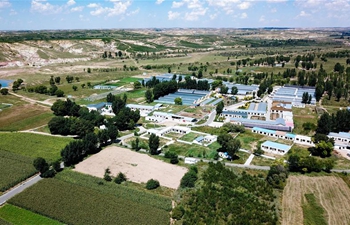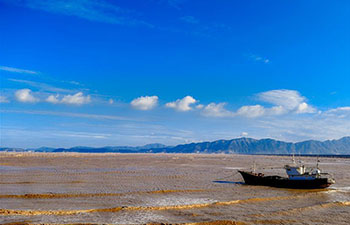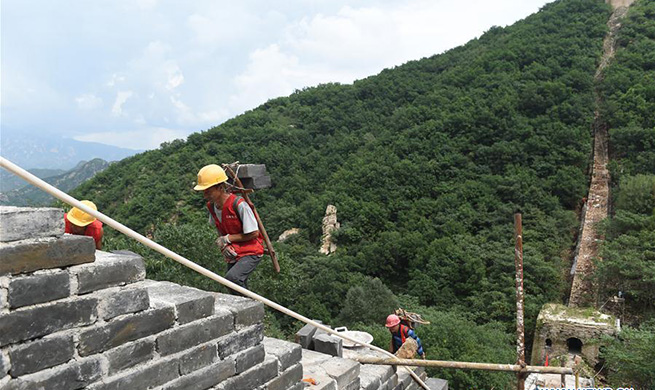KATHMANDU, Aug. 24 (Xinhua) --- The Bay of Bengal Initiative for Multi-Sectoral Technical and Economic Cooperation (BIMSTEC) can act as a vibrant regional organization to deepen cooperation in the field of railroad connectivity, trade, tourism, transit and energy among BIMSTEC member states, experts said here on Friday.
The experts made the remarks during a talk program titled "BIMSTEC: Connecting South and Southeast Asia" organized by the Centre for South Asian Studies, a Kathmandu-based think tank.
Prakash Sharan Mahat, the former foreign minister of Nepal, said that BIMSTEC member states should make collective efforts to enhance cooperation in multiple areas including railroad connectivity, trade, tourism, transit and energy thereby benefiting the people of Bay of Bengal region.
Former Foreign Secretary of Nepal, Madhuraman Acharya, opined that BIMSTEC should focus its activities on core areas of regional economic integration and connectivity in the days to come as the Bay of Bengal region is considered as the least developed region in the world.
"With population of 1.6 billion and a combined GDP of 2.5 trillion U.S. dollars, the Bay of Bengal region is globally important. It is already among the fastest growing regions in the world," the former foreign secretary said while highlighting the importance of BIMSTEC in deepening regional cooperation.
Dinesh Bhattarai, a former ambassador of Nepal to the United Nations, was of the view that BIMSTEC member states can closely work together in multiple sectors including religious tourism, security, migration, physical connectivity, among others.
Talking also about the importance of the South Asian Association for Regional Cooperation (SAARC), Bhattarai said that BIMSTEC should not become a substitute of SAARC given its own distinct identity and nature in South Asia region.
Addressing as the chief guest of the event, Nepali Foreign Minister Pradeep Kumar Gyawali said that BIMSTEC holds a huge potential for physical connectivity as the Bay of Bengal region is bestowed with the abundance of natural, cultural and human resources.
"BIMSTEC is well positioned to make notable contributions towards advancing regional connectivity, linking SAARC and ASEAN. For a landlocked country like Nepal, BIMSTEC carries more significance. It bears the prospects for propelling economic growth by connecting the hinterlands of the Himalayas to the ports of Bay of Bengal," he said.
The foreign minister said that BIMSTEC countries can promote trade and investment by fostering intra-regional connectivity around the region.
"The leverage South Asia and South East Asia have will dramatically increase once the two regions are well connected and better integrated through BIMSTEC. South Asia will find its way into and across the Pacific whereas South East Asia will have easier access to Central Asia and Europe," he said.
On the occasion, Wu Yongnian, an expert belonging to Shanghai Institute of International Studies from China, viewed that a sincere comprehensive regional cooperation between South Asia and Southeast Asian countries under the framework of BIMSTEC can only build a long-term socio-economic development.
He also said that China can be one of the helpful countries to solve the problems of South Asia and Southeast Asian countries under the framework of BIMSTEC as China has been advocating the concept of win-win cooperation under its Belt and Road Initiative.
Nepal is going to host the fourth summit of the Bay of Bengal Initiative for Multi-Sectoral Technical and Economic Cooperation (BIMSTEC) on August 30 and 31 in Kathmandu.
Nepal is the present chair of BIMSTEC, a regional block established in 1997. BIMSTEC groups India, Bangladesh, Bhutan, Myanmar, Nepal, Sri Lanka and Thailand.













